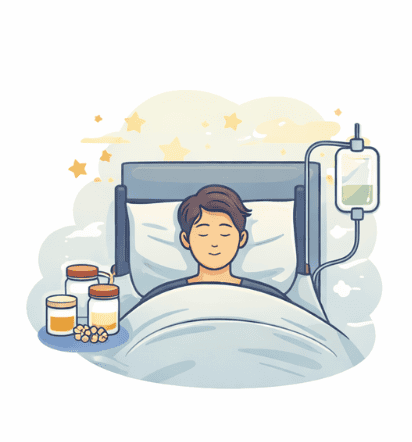
Detox
Detox is the first step for most people. A medically supervised detox helps you come off amphetamines safely, manage the crash and stabilise your sleep, mood and appetite. You’ll have 24/7 nursing and medical oversight, with medication and psychological support to ease withdrawal. Typical stay is 1-3 weeks, depending on the type of amphetamine, dose and length of use.



